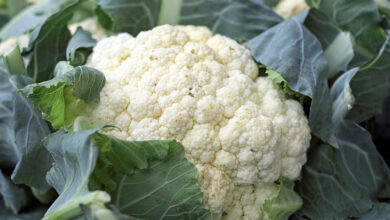Lemons: Health Benefits And Side Effects

The History Of Lemons In Nutrition
The evergreen lemon tree produces fragrant fruits – lemons. They appeared as a result of crossing citron and bitter orange. At the moment, wild lemons are unknown. The word is borrowed from the Italian “limone”, and the Italians took the Persian word, which the latter denoted any citrus.
This plant is native to China, India and tropical Pacific Islands. From Pakistan and India, lemons were brought to Spain, Italy, and the Middle East. Tree seedlings came to Russia in the 17th century. Then it was a rarity, and for the sake of lemon trees they created the position of “caretaker of lemons.”
Now the leaders in the cultivation of this fruit are Mexico and India. Every year, a total of 14 tons of lemons are harvested, which grow in subtropical countries.
The Health Benefits Of Lemons
The pulp and juice contain many acids, especially citric acid, as well as pectin and sugar. There is also a gelling agent pectin in lemon, as well as carotene.
Lemon has a bright smell due to essential oils. They are found in seeds, peel and even leaves. Lemon oil contains phytoncides and has a bactericidal effect, inhibiting the growth of bacteria.
It is believed that lemon is the leader in the content of ascorbic acid. In fact, it is not ahead of other citrus fruits, and it lags behind some. But vitamin C in lemon is very stable and does not break down even after 5 minutes of heating. Therefore, the benefits of lemon vitamin C do not decrease in hot tea or five-minute jam.
Sour lemon juice, diluted with water, helps well with vomiting, relieves nausea during toxicosis of pregnant women. You can wipe the skin with juice and water – this reduces its fat content, rinse your mouth with inflammation. Calluses and rough skin can be softened with pulped lemon peels.
When eating lemon, intestinal motility increases, the acidity of gastric juice increases. Therefore, lemon is useful in hypoacid conditions, when there is not enough own acid.
The Composition And Calorie Content Of Lemons
| Calories per 100 grams | 34 kcal |
| Squirrels | 0.9 g |
| Fats | 0.1 g |
| Carbohydrates | 3 g |
The Side Effects Of Lemons
“Lemon is a very strong allergen, so you need to take them with caution, especially for children. These fruits contain many acids that can cause dermatitis and damage tooth enamel – it is better to rinse your mouth after eating lemon. Lemons also contain a lot of sugar, they should not be consumed in diabetes and peptic ulcers.
The Use Of Lemons In Medicine
Lemons were used for beriberi, vitamin C deficiency, scurvy. In folk medicine, lemon was used to treat urolithiasis, gout, rheumatism, high blood pressure, and the common cold. With fever and temperature, lemonade helped quench thirst.
Citric acid served as an antidote for alkali poisoning, neutralizing it.
Lemon oil is extracted from the peel of a lemon, which is then used in the cosmetics industry and to improve the taste of medicines. Tincture of zest increases appetite, soothes and relieves nausea.
Citral is obtained from the oil. This is what gives the lemon its distinctive smell. Citral is used as a natural flavouring agent, as well as in perfumery. It is part of the eye drops, lowers blood pressure.
In cosmetology, lemon juice and oil strengthen nails, improve hair condition, whiten skin.




